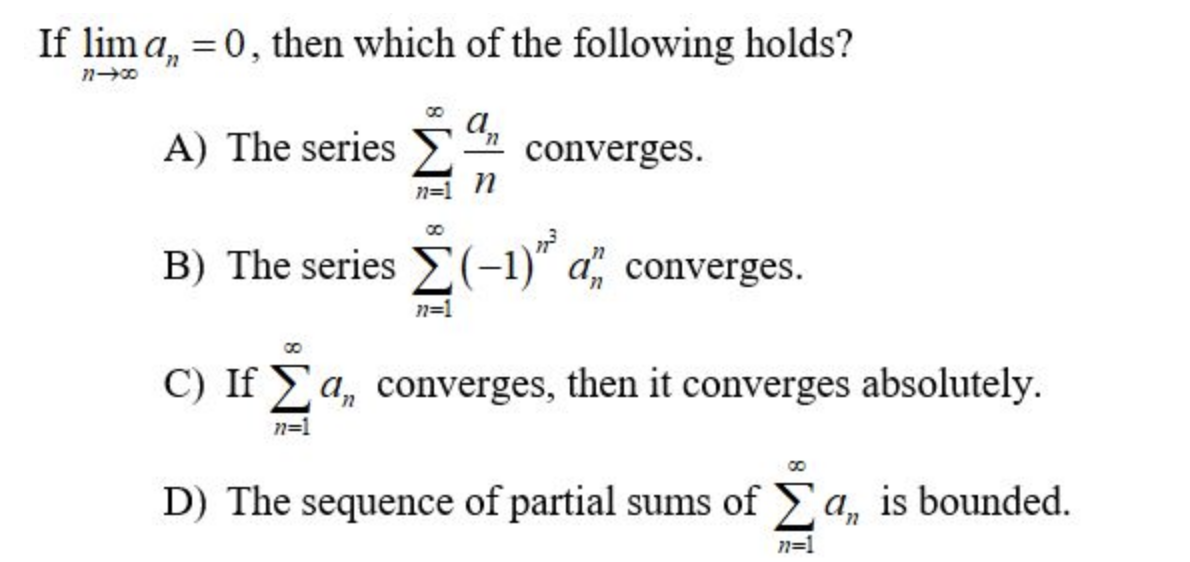Home /
Expert Answers /
Calculus /
if-lim-n-gt-infty-a-n-0-then-which-of-the-following-holds-a-sum-n-1-infty-a-n-n-pa133
(Solved): If \lim_(n->\infty )a_(n)=0, then which of the following holds? A\sum_(n=1)^(\infty ) (a_(n))/(n) ...
If \lim_(n->\infty )a_(n)=0, then which of the following holds?
A\sum_(n=1)^(\infty ) (a_(n))/(n) converges.
B\sum_(n=1)^(\infty ) (-1)^(n^(3))a_(n)^(n) converges.
C\sum_(n=1)^(\infty ) a_(n) converges, then it converges absolutely.
D\sum_(n=1)^(\infty ) a_(n) is bounded.